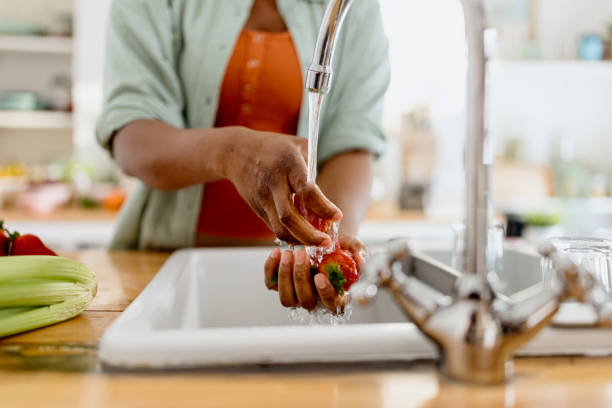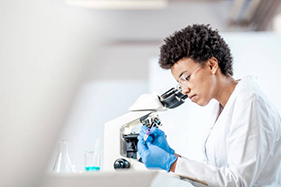Food poisoning is an all-too-common issue that can result from consuming contaminated food. It’s a serious condition that can lead to symptoms such as stomach cramps, vomiting, diarrhea, and in severe cases, hospitalization. Ensuring food safety in your kitchen and when dining out is crucial to prevent these unpleasant and potentially dangerous outcomes. Here’s a comprehensive guide to help you keep your food safe and reduce the risk of food poisoning.
Understanding Food Poisoning
Food poisoning is typically caused by bacteria, viruses, parasites, or toxins that contaminate food. Common culprits include:
Bacteria: Salmonella, E. coli, Listeria, and Campylobacter are some of the bacteria responsible for foodborne illnesses.
Viruses: Norovirus and Hepatitis A are viruses that can contaminate food and cause sickness.
- Parasites: Protozoa, worms, and other parasites can lead to foodborne illnesses if ingested.
- Toxins: Some bacteria produce toxins that remain in food even after cooking, leading to poisoning.
How to Prevent Food Poisoning: Key Tips
- Wash Hands and Surfaces
One of the simplest and most effective ways to prevent food poisoning is to maintain cleanliness in the kitchen.

- Wash Hands: Always wash your hands thoroughly with soap and water before and after handling food, especially raw meat and poultry. This helps remove any harmful bacteria or viruses.
- Clean Surfaces: Regularly clean and sanitize kitchen surfaces, cutting boards, utensils, and countertops. Use hot, soapy water and consider using a disinfectant or a mixture of water and vinegar for added safety.
- Cook Foods Thoroughly
Proper cooking is essential for killing harmful bacteria and ensuring food safety.
- Use a Food Thermometer: Invest in a food thermometer to ensure meats and other foods are cooked to the appropriate internal temperature. For example, poultry should reach 165°F (74°C), ground meats should be at least 160°F (71°C), and steaks or roasts should be cooked to at least 145°F (63°C).
- Avoid Partial Cooking: Don’t partially cook food and then finish cooking it later. This can allow bacteria to multiply
- .Wash Fruits and Vegetables
Produce can carry harmful bacteria and pesticides, so it’s crucial to clean it properly. - Rinse Under Running Water: Always rinse fruits and vegetables under running water before eating, cutting, or cooking. This helps remove dirt, bacteria, and residues
- Use a Brush for Hard-Skinned Produce: For produce with hard skins, such as potatoes or melons, use a vegetable brush to scrub the surface.

Store Food Properly
Proper storage of food helps prevent bacterial growth and spoilage.
- Refrigerate Perishables: Keep perishable foods, such as meat, dairy, and leftovers, in the refrigerator at or below 40°F (4°C). Use a thermometer to monitor the refrigerator’s temperature.
- Avoid Leaving Food Out: Don’t leave perishable foods out at room temperature for more than two hours. In hot weather (above 90°F or 32°C), reduce this time to one hour.
Be Cautious at Events
Food safety can be particularly challenging at social events and gatherings.
- Avoid Food That’s Been Sitting Out: Be cautious with food that has been left out for extended periods, especially in warm environments. Bacteria can multiply rapidly when food is not kept at the correct temperature.
- Check for Proper Handling: Ensure that food at events is being handled and served properly, including maintaining adequate heating or cooling.
What to Do If You Experience Food Poisoning Symptoms
If you suspect that you have food poisoning, it’s important to take action quickly:
- Seek Medical Attention: If symptoms are severe, persistent, or include high fever, blood in stool, or prolonged vomiting, seek medical attention immediately. Food poisoning can lead to serious health complications if not addressed promptly.
- Stay Hydrated: Drink plenty of fluids to prevent dehydration, especially if experiencing diarrhea or vomiting. Oral rehydration solutions or clear broths can help replace lost fluids and electrolytes.
Conclusion: Prioritize Food Safety
Preventing food poisoning involves a combination of good hygiene practices, proper cooking, and correct food storage. By following these simple yet effective steps, you can significantly reduce the risk of foodborne illnesses and ensure that the food you consume is safe and healthy.
Staying vigilant about food safety not only protects your health but also contributes to a safer dining experience for yourself and those around you. So, keep your kitchen clean, cook your food thoroughly, and always be mindful of proper food handling techniques.


